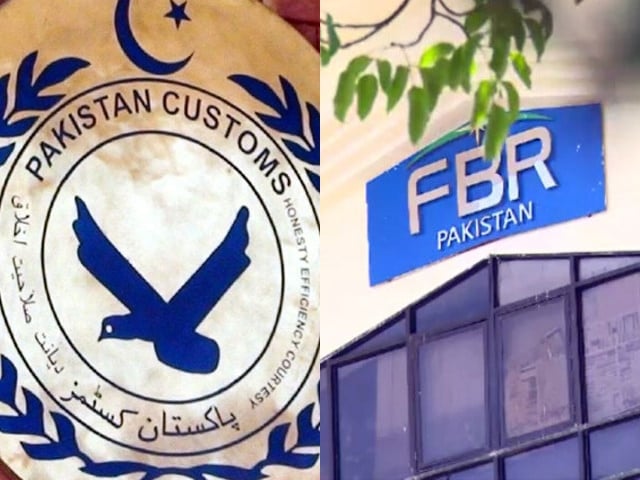ISLAMABAD: On Wednesday, the Pakistan Customs Group moved a resolution in which it resolved to pursue legal action against Prime Minister Shehbaz’s attempt to rid the Federal Board of Revenue (FBR) of personnel who had been compromised. The resolution sought evidence of categorizing tax officers between dishonest and honest.

Before bringing the issue to the highest level, the Association of Custom Officers moved the resolution for its members to vote on, according to sources.
After receiving a majority vote within a day, the group intends to put pressure on the government for taking a move that not only brought attention to the premier but also exposed two of the most prominent civil service groups to the public eye.
25 FBR officers serving in grades 21 and 22 had their posts terminated by the prime minister last week as a result of negative findings from three top intelligence agencies. Eleven officers from the Customs Service and fourteen from the Inland Revenue Service made up this group of twenty-five.
The top management of the FBR and the three intelligence agencies were instructed by Prime Minister Shehbaz to evaluate the financial integrity, skill, and transparency of the highest tier of the tax apparatus.
The government classified the FBR officers working in grades 20 to 22 into four groups based on the intelligence services’ recommendations.
The top jobs as members, chief commissioners, and chief collectors are going to the spick and select clean and capable officers.
Only category “A” officers with outstanding qualifications and a stellar reputation should hold the top administrative roles in the FBR, such as board members, chief commissioners, commissioners, chief collectors, and collectors.
Officers in category “B” were assigned comparatively less significant roles, while officers in category “C” were marginalized.
On Friday, grade 21 and 22 officers belonging to category “D” were taken out of their duties and added to the FBR administration pool.
According to sources, the Customs officers believed they had a right to the due process protections guaranteed by the Civil Servants Act of 1973 and the Constitution.
They contended during a meeting that the government had profiled police into several categories arbitrarily, without following the proper procedures, and in a way that was opaque.
They have made demands of the government to divulge the proof of these officers’ incompetence and corruption.
The Customs authorities asserted that there was no merit to the profiling procedure as a whole.
The problem went beyond simple charges of wrongdoing. Even those categorized as less productive faced challenges.
With the exception of those who supplied oblique input for profiling, the entire top tier of Customs is all but eliminated.
The two grade 2 officers, Mukaram Jah Ansari and Ahmad Mujteba Memon, were allegedly victimized by the Customs personnel due to their involvement in the FBR reorganization.
Similar to this, the well-known and honest former chairman of the Federal Reserve Board, Mohammad Ashfaq, was categorized as D owing to his involvement in the offshore asset issue involving Chief Justice Qazi Faez Issa.
According to sources, the resolution also brought attention to the problem of a “media trial” of FBR’s services and its officers based on baseless accusations, damaging their reputations and depressing officer morale and output.
One factor contributing to the Rs 40 billion tax gap that the FBR experienced in April was the go-slow approach taken by a few grade 20 officers holding important posts while they awaited their fate.
The government now intends to take action against grade 20 officials after grade 21 and 22.
Given that several of the officers had been the subject of investigations for years without receiving any action, the government’s decision to remove them was justified.
The officers have asked the FBR for comprehensive details about the profiling activity through the resolution.
covering the steps taken, the constraints, the foundation, the supporting documentation, and any associated issues for the profile.
The FBR chairman has also been requested by the officers to carry out his duties in upholding the law’s due process requirements and safeguarding the legal rights of FBR officials in relation to matters including incompetence, wrongdoing, and honesty.
It has been suggested to engage with all parties outside of FBR, such as the press and electronic media, in order to take all necessary measures to reverse the violation of officers’ legal rights.
It was also advised to use all available legal avenues, including going to court, in order to defend the rightful interests of the Customs Service and its staff.










































